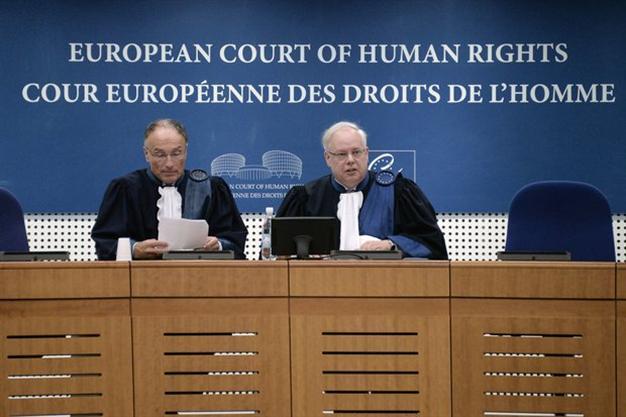Turkey welcomes European court’s ruling granting right to deny ‘genocide’
ANKARA

AFP photo
Welcoming a ruling by the top European court of human rights, which said Switzerland had violated a Turkish politician’s right to freedom of speech by convicting him for denying the killing of Armenians by Ottoman Turks in 1915 amounted to genocide, Turkey has called the ruling “an important turning point, as it provides a reply to the exploitation of history and law for political motives.”“Turkey, having intervened as a third party from the beginning to the case, welcomes its conclusion in line with its views,” the Turkish Foreign Ministry said in a written statement released late on Oct. 15, referring to the European Court of Human Rights’ ruling delivered earlier in the day.
Doğu Perinçek, the leader of Turkey’s Vatan Party (VP), was convicted in a Swiss court after speaking at several public events in Switzerland in 2005 and his appeals were rejected. He filed a case at the European court in June 2008.
“Based on the principles of democracy and law, we deem the judgment as a very strong signal against all efforts imposing the ‘genocide’ allegation as the only and absolute truth along with attempts and practices which even forbid questioning it,” the Foreign Ministry said.
“The judgment has registered the fact that parliaments and leaders are not competent to rewrite history by going beyond their powers. It also acknowledges that courts could not adjudicate on history by disregarding the relevant judicial norms. The judgment will establish a precedent for similar cases as a significant source of European human rights jurisprudence. The judgment also sets an important turning point as it provides a reply to the exploitation of history and law for political motives,” it said.
“The judgment constitutes a significant legal gain from the point of democracy, freedom of expression and human rights and the policy Turkey has pursued in recent years with patience and moderation on the events of 1915. According to the judgment, the events of 1915 are a matter of legitimate debate and different opinions relating to what happened during that period are under the protection of freedom of expression.
Likewise, it is in no way possible to compare what happened in 1915 with the Holocaust,” it said.
The events of 1915 are a highly sensitive issue both in Turkey and among Armenians in Armenia and in diaspora. Turkey accepts that Christian Armenians were killed by Ottoman forces during World War I, but denies there was any systematic attack on civilians amounting to genocide.
The court said it did not fall into the scope of the case to determine whether the massacres and mass deportations of Armenians by the Ottoman Empire from 1915 constituted genocide as defined by international law.
















